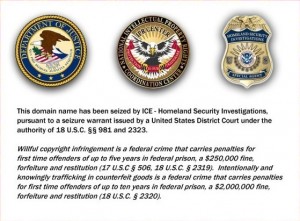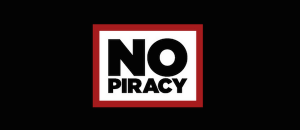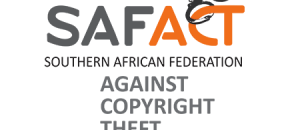 If you follow technology news regularly you will have, without a doubt, read about SOPA (Stop Online Piracy Act) and PIPA (PROTECT IP Act — Preventing Real Online Threats to Economic Creativity and Theft of Intellectual Property Act). With SOPA and PIPA being thrown around on every bloody website in the past few weeks, it may be hard to grasp exactly what they are and what they mean. So dotTech has broken it down for you. Keep reading to learn more.
If you follow technology news regularly you will have, without a doubt, read about SOPA (Stop Online Piracy Act) and PIPA (PROTECT IP Act — Preventing Real Online Threats to Economic Creativity and Theft of Intellectual Property Act). With SOPA and PIPA being thrown around on every bloody website in the past few weeks, it may be hard to grasp exactly what they are and what they mean. So dotTech has broken it down for you. Keep reading to learn more.
What Are SOPA And PIPA?
SOPA is the Stop Online Piracy Act. PIPA is the PROTECT IP Act, also known as Preventing Real Online Threats to Economic Creativity and Theft of Intellectual Property Act. SOPA and PIPA are two parts of the same legislation passing through the U.S. Congress. SOPA is the version of the bill proposed in the U.S. House of Representatives while PIPA is the version of the bill proposed in the U.S. Senate. (PIPA was introduced in the Senate first; SOPA came to the House of Representatives as a bigger, badder version of PIPA.) Essentially both SOPA and PIPA are brothers from different mothers; both, generally speaking, propose online piracy countermeasures. If passed by Congress, both will most likely be merged into one single act before being made law.
SOPA/PIPA can broadly be termed as anti-piracy acts. The goal of these acts, on paper, is to stem online piracy of intellectual property and copyrighted content. The acts loosely define what “copyright infringement” is and gives copyright holders and the government far-reaching powers to sue websites/companies/individuals suspected of copyright infringement. Consequences of lawsuits brought under SOPA/PIPA include freezing of funds for accused entities by baring ad networks and payment processing companies from doing business with accused infringers; forcing search engines to de-link accused websites; and making ISPs block access to infringing websites. Additionally, unauthorized streaming of copyrighted content is made a crime punishable by jail time and companies that voluntarily act against copyright infringers will gain immunity from prosecution.
Any copyright holder that knowingly abuses SOPA/PIPA against an entity (i.e. claims a website/company/individual is infringing on copyrights when the website/company/individual actually is not) is liable for damages.
Isn’t this a good thing?
Any regular dotTechie knows I am against pirating. So, then, that would mean I am pro SOPA/PIPA, right? Wrong. In an ideal world these types of protection for intellectual property would be excellent. However, in the real world and in the acts’ current form, there is a high potential for abuse. In fact the risk for abuse is so high SOPA and PIPA are being dubbed censorship acts and are predicted to stem free speech, innovation, creativity, and the ability to overthrow dictators. The end is not justifying the means.
The following video provides a good explanation on SOPA/PIPA and why we should oppose them:
“I’m Not In the USA, So I don’t Care”
If you are under the impression that SOPA/PIPA will only affect USA citizens, you are a fool. The people who wrote SOPA/PIPA aren’t stupid; they may be serving the interest of a select few over the interest of the general population, but they aren’t stupid. Because the American government has no legislative power outside the US borders (jokes about carrying a big stick aside), SOPA/PIPA have been designed to leverage the power of American e-commerce against piracy. In laymen’s terms, SOPA/PIPA will do things such as: Force US-based domain registrars to hijack the domains of infringing websites, regardless of if the accused infringer is a USA-based website or not; make US entities, including web hosts, search engines, blogs, magazines, etc., not do business with infringing websites; etc. These actions will have ripple affects throughout the world. For example, a UK-based website’s domain is registered with GoDaddy. GoDaddy is an American company and thus under the jurisdiction of SOPA/PIPA. If the UK-based website is accused of copyright infringement under SOPA/PIPA, its domain can be hijacked and taken away from it. In short, SOPA/PIPA does not have the ability to cut off the head of accused copyright infringers that are outside the USA; but it will break their legs and thus cripple them in the process.
Furthermore, a website of a USA company, such as YouTube, will be no longer be accessible by people outside the USA if that USA company is hit by SOPA/PIPA. Plus, as the video above duly noted, once USA passes such a law do you really think other countries will sit still and do nothing? Other nations will draft similar legislation, some of which may be more abusive than what we have proposed here.
“But Aren’t We Doing This Already?”
Yes, much of the anti-piracy measures mentioned above are already in place and being enforced. The problem with SOPA/PIPA isn’t necessarily the punishment it dishes out, although some may argue that is also an issue. The biggest issue with SOPA/PIPA is how it defines who can be targeted by the legislation; it broadly widens the scope of anti-piracy measures. Not very many people will argue, at least not publicly, in favor of websites like The Pirate Bay. Rather, it is the innocent websites that get crushed in the process. For example, a website – such as a non-infringing social network or blog – that lists a link to an infringing website (posted by a reader, not the website itself) can potentially be shutdown under SOPA/PIPA.
Think about it this way. Let’s say cocaine is illegal in your country. Now let’s say your neighbors are cocaine dealers. One day the police raids your neighbors’ home and arrests them distribution of cocaine. In the process, you get arrested for breathing cocaine fumes. You aren’t using cocaine, don’t plan on ever using cocaine, nor did you even know your neighbors dealt drugs; but you are still held accountable for your neighbors’ actions. SOPA/PIPA is essentially doing the same thing to the Internet. However, in the case of SOPA/PIPA it isn’t just the government that has the power to bring infringers – or people who they suspect of infringing – to justice; intellectual property owners, too, can bring ‘suits under SOPA/PIPA. You know, the companies that are known to abuse the rights granted to them by law as IP owners.
See the problem?
Who Is For And Against SOPA/PIPA
Companies who’s intellectual property is regularly pirated are for SOPA/PIPA; companies such as Viacom, Disney, ABC, CBS, etc. — basically the entertainment industry plus a few others. Companies who can potentially be targeted by SOPA/PIPA are against it; companies such as Google, AOL, eBay, Facebook, etc. — basically all Web 2.0 companies.
The official list of SOPA supporters is as follows:
- 60 Plus Association
- ABC
- Alliance for Safe Online Pharmacies (ASOP)
- American Bankers Association (ABA)
- American Federation of Musicians (AFM)
- American Federation of Television and Radio Artists (AFTRA)
- American Society of Composers, Authors and Publishers (ASCAP)
- Americans for Tax Reform
- Artists and Allied Crafts of the United States
- Association of American Publishers (AAP)
- Association of State Criminal Investigative Agencies
- Association of Talent Agents (ATA)
- Beachbody, LLC
- BMI
- BMG Chrysalis
- Building and Construction Trades Department
- Capitol Records Nashville
- CBS
- Cengage Learning
- Christian Music Trade Association
- Church Music Publishers’ Association
- Coalition Against Online Video Piracy (CAOVP)
- Comcast/NBCUniversal
- Concerned Women for America (CWA)
- Congressional Fire Services Institute
- Copyhype
- Copyright Alliance
- Coty, Inc.
- Council of Better Business Bureaus (CBBB)
- Council of State Governments
- Country Music Association
- Country Music Television
- Creative America
- Deluxe
- Directors Guild of America (DGA)
- Disney Publishing Worldwide, Inc.
- Elsevier
- EMI Christian Music Group
- EMI Music Publishing
- Entertainment Software Association (ESA)
- ESPN
- Estée Lauder Companies
- Fraternal Order of Police (FOP)
- Gospel Music Association
- Graphic Artists Guild
- Hachette Book Group
- HarperCollins Publishers Worldwide, Inc.
- Hyperion
- Independent Film & Television Alliance (IFTA)
- International Alliance of Theatrical and Stage Employees (IATSE)
- International AntiCounterfeiting Coalition (IACC)
- International Brotherhood of Electrical Workers (IBEW)
- International Brotherhood of Teamsters (IBT)
- International Trademark Association (INTA)
- International Union of Police Associations
- L’Oreal
- Lost Highway Records
- Macmillan
- Major County Sheriffs
- Major League Baseball
- Majority City Chiefs
- Marvel Entertainment, LLC
- MasterCard Worldwide
- MCA Records
- McGraw-Hill Education
- Mercury Nashville
- Minor League Baseball (MiLB)
- Minority Media & Telecom Council (MMTC)
- Motion Picture Association of America (MPAA)
- Moving Picture Technicians
- MPA – The Association of Magazine Media
- National Association of Manufacturers (NAM)
- National Association of Prosecutor Coordinators
- National Association of State Chief Information Officers
- National Cable & Telecommunications Association (NCTA)
- National Center for Victims of Crime
- National Crime Justice Association
- National District Attorneys Association
- National Domestic Preparedness Coalition
- National Football League
- National Governors Association, Economic Development and Commerce Committee
- National League of Cities
- National Narcotics Offers’ Associations’ Coalition
- National Sheriffs’ Association (NSA)
- National Songwriters Association
- National Troopers Coalition
- News Corporation
- Pearson Education
- Penguin Group (USA), Inc.
- Pharmaceutical Research and Manufacturers of America (PhRMA)
- Pfizer, Inc.
- Provident Music Group
- Random House
- Raulet Property Partners
- Republic Nashville
- Revlon
- Scholastic, Inc.
- Screen Actors Guild (SAG)
- Showdog Universal Music
- Sony/ATV Music Publishing
- Sony Music Entertainment
- Sony Music Nashville
- State International Development Organization (SIDO)
- The National Association of Theatre Owners (NATO)
- The Perseus Books Groups
- The United States Conference of Mayors
- Tiffany & Co.
- Time Warner
- True Religion Brand Jeans
- Ultimate Fighting Championship (UFC)
- UMG Publishing Group Nashville
- United States Chamber of Commerce
- United States Olympic Committee
- United States Tennis Association
- Universal Music
- Universal Music Publishing Group
- Viacom
- Visa Inc.
- W.W. Norton & Company
- Wallace Bajjali Development Partners, L.P.
- Warner Music Group
- Warner Music Nashville
- Wolters Kluewer Health
- Word Entertainment
An unofficial list of SOPA/PIPA opposers is as follows:
- AOL
- Boing Boing
- Creative Commons
- Daily Kos
- Disqus
- eBay
- Etsy
- Foursquare
- Grooveshark
- Hype Machine
- Kickstarter
- Kaspersky
- Mozilla
- MetaFilter
- OpenDNS
- O’Reilly Radar
- Techdirt
- PayPal
- Torrentfreak
- Tumblr
- TechCrunch
- Yahoo!
- Zynga
- Scribd
- YCombinator
- Wikipedia
- Namecheap
- Petzel
- ICanHasCheezburger
- Quora
- Embedly
- MediaTemple
- CloudFlare
- StackExchange (Stack Overflow)
- Github
- Linode
- Hostgator
- Square
- The Huffington Post
- Craigslist
- ESET
- 4chan
The following are a few notable companies who supported SOPA/PIPA but have since withdrawn their support, either becoming against SOPA/PIPA or becoming neutral:
- Business Software Alliance (Includes Apple, Microsoft, Adobe Systems, Intel and more)
- Electronic Arts
- Sony Electronics
- Nintendo
- GoDaddy
Out of the above list the most notorious is GoDaddy. GoDaddy, a company who seemingly should be against it, came out in public support for SOPA/PIPA. There was (is) huge public outcry against GoDaddy for their support. Within 24-hours GoDaddy withdrew their support and become “neutral” on the issue. However, the damage was done: A campaign was organized by Reddit readers to get GoDaddy customers to transfer to other domain registrars; an estimated more than 37,000 domains jumped ship in two days. Because of its size (GoDaddy claims to register over 50 million domains) it is unclear how much of an affect the defections from GoDaddy had. Still, though, GoDaddy was crucified in the public domain (no pun intended) for its support for “Internet censorship”.
What You Can Do
If living outside the USA there isn’t much you can do aside from ensuring your own government doesn’t follow America’s example; and pressuring your favorite companies into not supporting SOPA/PIPA. If you live in the USA, however, you can contact your U.S. Congress Representative or Senator to urge them to fight against SOPA/PIPA. I’m sure a few campaign donations won’t hurt, either.
Conclusion
China – and some other nations – censor the Internet for political purposes. We, the “leaders” of the “free world”, want to censor the Internet to protect the people and companies who make billions of dollar a year. I am not pro-piracy in the least; but SOPA/PIPA is not the answer to stop online piracy. I’m not going to predict doomsday if SOPA/PIPA pass, but it surely won’t be good.
Feel free to discuss in the comments below.
[via Engadget, Wikipedia, TechCrunch, U.S. House of Representatives, BBC, FightForTheFuture, and more]

 Email article
Email article



